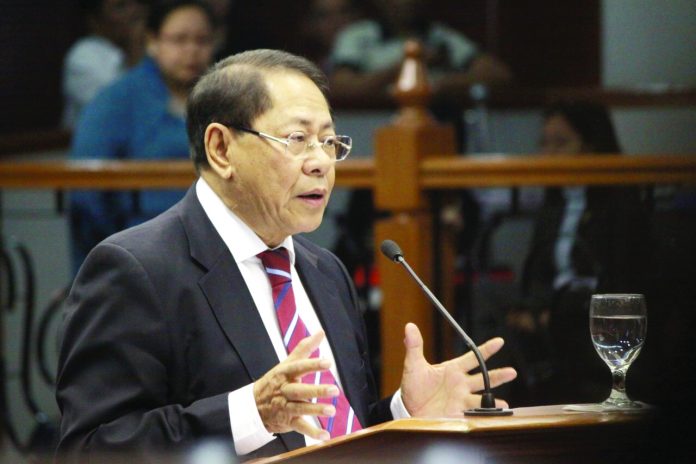
TOMORROW marks the first anniversary of the death of one of the country’s great leaders and statesmen, the late Senate President Edgardo Javier Angara.
On May 13, 2018, the nation was shocked when Angara’s senator son, Sonny Angara, announced on Twitter that his father died from an apparent heart attack in Tagaytay City. He was 83.
Tributes and messages of condolences quickly poured in for the family of the “boy from Baler,” his hometown in Aurora province, whose enormous contributions toward nation-building cannot be overstated.
Angara had served the country under several administrations and in various capacities, the last of which was Special Envoy to the European Union under the Duterte administration. He also became president of the University of the Philippines system, agriculture secretary and executive secretary.
But among the positions he held in government, Angara is most remembered as a four-term senator who pushed for landmark legislation on education, health care, agriculture and social welfare – all of which made a difference in the lives of millions of Filipinos.
During the 23 years he was in the Senate, Angara showcased his ability to create institutions through the laws he had authored. These include the Philippine Health Insurance Corp. (PhilHealth), Commission on Higher Education (CHED), Technical Education and Skills Development Authority (TESDA), National Center for Culture and the Arts (NCAA) and Sentro Rizal, the overseas Philippine cultural center much like Spain’s Instituto Cervantes and Italy’s Dante Alighieri Center. These institutions are the product of the hard work and brilliance of a visionary leader like Angara.
Angara is known as a trailblazer in education reform. Aside from the charters of CHED and TESDA, Angara also authored the Free High School Act of 1988 that ensured secondary education even for the poorest. He also created the Government Assistance to Students and Teachers in Private Education or GASTPE, the biggest scholarship program in the country.
The visionary laws he championed have revolutionized the country’s education system by opening up exciting new learning opportunities for underprivileged Filipinos. He was a true champion of people’s right to education.
Angara was also an advocate for the Filipino elderly. He was responsible for the Senior Citizens Act of 1992, also known as the Angara law, which allowed the elderly to avail of the 20-percent discount of certain goods and services.
The late lawmaker was also behind the Agriculture and Fisheries Modernization Act, where farmers and fisher folk benefited from improved seeds and plant materials, better irrigation, better financing and market access.
During his last term in the Senate, Angara made sure Filipinos will be protected in today’s digital age through his authorship of 21st-century laws like the Cybercrime Prevention Act and the Data Privacy Act.
This country is eternally grateful to Angara – an outstanding leader, statesman, lawyer, farmer, patron of the arts and educator. His legacy will be forever carried on through the lives of Filipinos./PN





